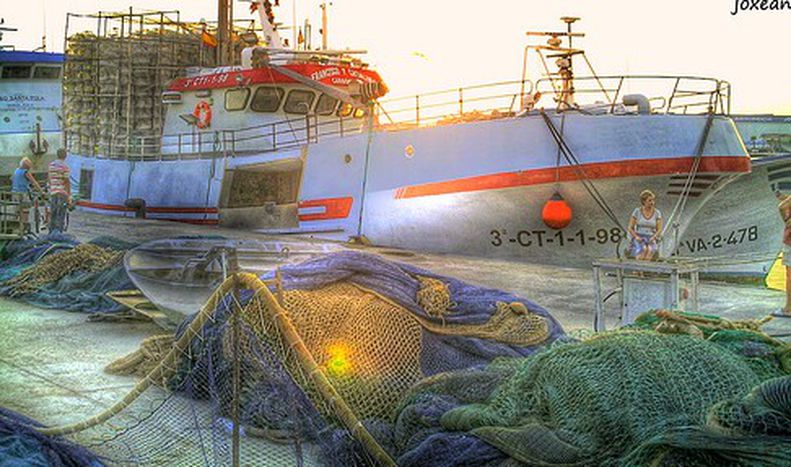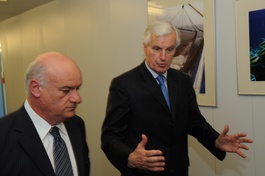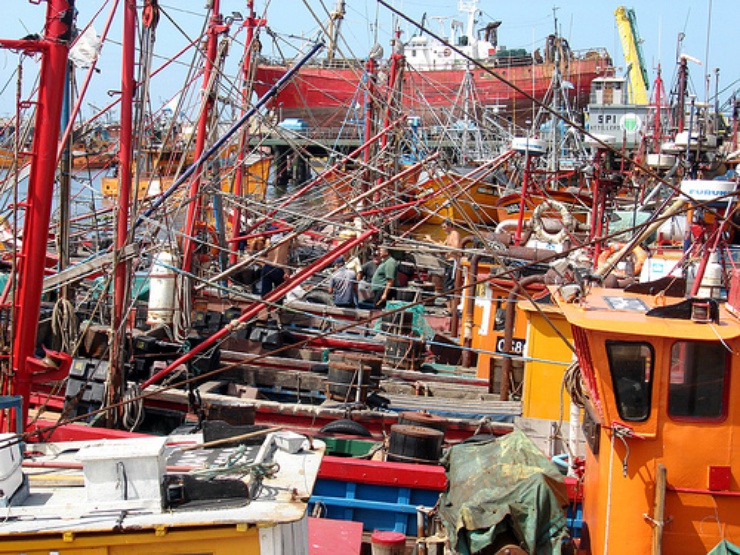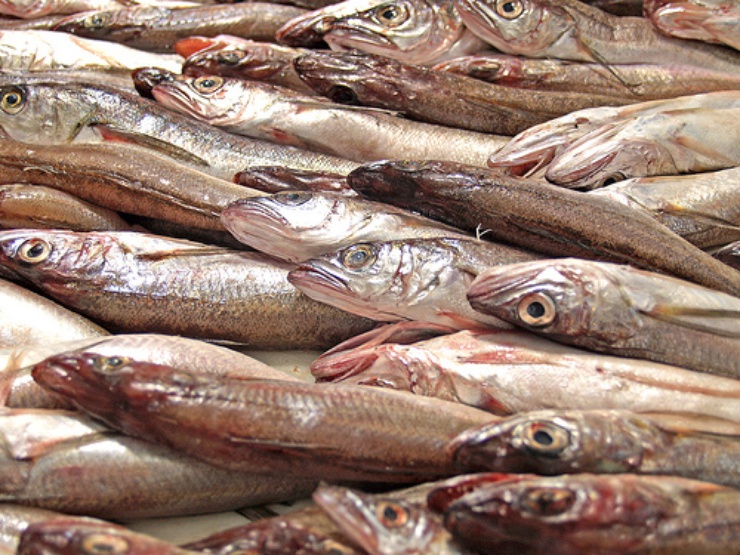
Fisherman, the end of a profession in Europe?
Published on
Translation by:
 Kate Stansfield
Kate Stansfield
‘Fresh home-caught fish!’ Will we still be hearing this cry in a few years’ time? There certainly seems to be reason to worry, judging by the situation of the European fishing industry
As fuel prices soar, the European Union has just introduced new restrictive fishing quotas. Today, the profession finds itself in an impossible situation, struggling to make its voice heard. Should we expect the marginalisation of the job of fisherman in Europe?
Brussels: yes to government help, no to a re-evaluation of fishing quotas!
On 17 June 2008, in spite of its fairly strict attitude towards national initiatives attempting to influence the common fishing policy, the European commission finally gave in to the requests of national governments concerning the allocation of emergency aid to sea-fishermen. Demands came from French, Spanish, Italian, Greek, Portuguese, Maltese and Slovene fisheries ministers. The upper limit of the aid bracket allocated to each fishing business is increasing from 30, 000 to 100, 000 euros. This is due to fuel prices rising, an issue which is seriously damaging an already precarious sector. For French fisherman for example, fuel represented 15% of turnover in 2004, 30% at the end of 2007, and almost 50% today.
 However, every other measure has been rejected by the commission for now, including most notably the introduction of a tool to help stabilise the price of petrol. The decision reached on 17 June to stop the fishing of red tuna in the Mediterranean has been met by protests backed by Paris, Madrid and Rome. Joe Borg, the European commissioner for fisheries, remains categorical: ‘We cannot seriously expect the commission to examine the very ill-founded demands to reconsider the quotas,’ suspecting certain tuna boats of failing to declare their catches. If governments have such a limited influence, how can fishermen make their voices heard?
However, every other measure has been rejected by the commission for now, including most notably the introduction of a tool to help stabilise the price of petrol. The decision reached on 17 June to stop the fishing of red tuna in the Mediterranean has been met by protests backed by Paris, Madrid and Rome. Joe Borg, the European commissioner for fisheries, remains categorical: ‘We cannot seriously expect the commission to examine the very ill-founded demands to reconsider the quotas,’ suspecting certain tuna boats of failing to declare their catches. If governments have such a limited influence, how can fishermen make their voices heard?
A really effective method of complaint?
Most of the proposals for a way out of the crisis, put forward by national governments and France in particular, have been rejected by Brussels. This poses the question of the weight one country’s voice can bear upon a policy made on the European scale. Indeed, if the final decision belongs to Brussels, it seems crucial that fishermen speak with one common voice in order to finally make their complaints heard. They must directly address the European authorities, and go through the intermediary of transnational professional organisations. And yet, shortcomings in terms of organisation and consensus on the solutions to adopt have been observed.

Firstly, there is a disorganisation on the level of representation. We have seen professional fishermen’s organisations, such as Cepesca in Spain, launch blockade operations in several countries, and request mostly financial support from their governments. However, there has not been an initiative on a European scale to send a strong message towards Brussels. The only organisation of fisherman with a European dimension, Europeche, dissociated itself from the protest movement of 4 June 2008 in Brussels, which led to the arrest of 74 fishermen.
A deep rift then developed behind the scenes. There are, in fact, two approaches for digging the fishing industry out of this crisis. 'Southern Europe' - notably France and Spain, themselves representing more than a third of the EU's fleet in terms of tonnage - is opting for government aid to the fishing sector, mainly to limit the impact of expensive fuel on the fishing business turnovers. The emergency measures may well be effective in the short term, but are of limited impact in the long term.
Northern European countries such as Denmark are primarily addressing a ramification of the increase in petrol prices on the consumer by simply selling cheaper fish. This solution has the advantage of not modifying the fiscal policy implemented by Brussels. This proposition not only goes against the economic programme of several European countries focused on consumer purchasing power; the explosion of fuel prices is such that this response cannot be applied as a long-lasting solution either.
What solutions remain for European fishermen?
‘The real solution is structural, not temporary!’ declared Christian Buchet, director of the marine studies centre at the catholic institute in Paris. Rather than speak about subsidies or price increases, it is becoming necessary to consider structural reforms of the European fishing industry, which is suffering ‘from a vicious circle of overcapacity, overfishing and declining profitability,’ according to Joe Borg. To this end, the commission hopes to facilitate support aimed at equipping fishing vessels with more fuel-efficient motors. Another essential measure: help fishermen get higher prices for their catches from middlemen and retailers. When the price paid to fishermen is one to ten times less than that paid by consumers, there's reason to ask a few questions!

However, despite these measures, a reduction in the European fleet still seems crucial. Will fishing become marginalised to the point of being reduced to a tourist attraction as an integral part of European coastal folklore? Or will it manage to adapt to the huge upheaval caused by the current crisis? In either case, it will fall to Europe to find a common solution, particularly regarding expensive fuel, before these energy-related crises contaminate the rest of the economy. Other professions, including lorry drivers, have started to rally.
Translated from Marin pêcheur, la fin d’une profession en Europe ?


